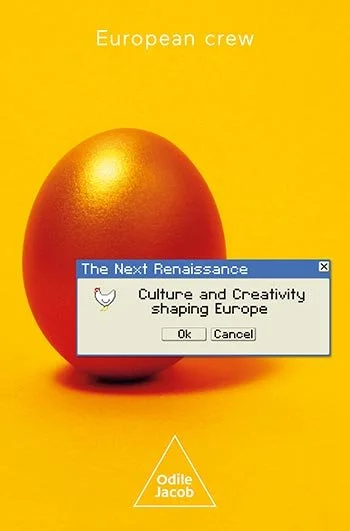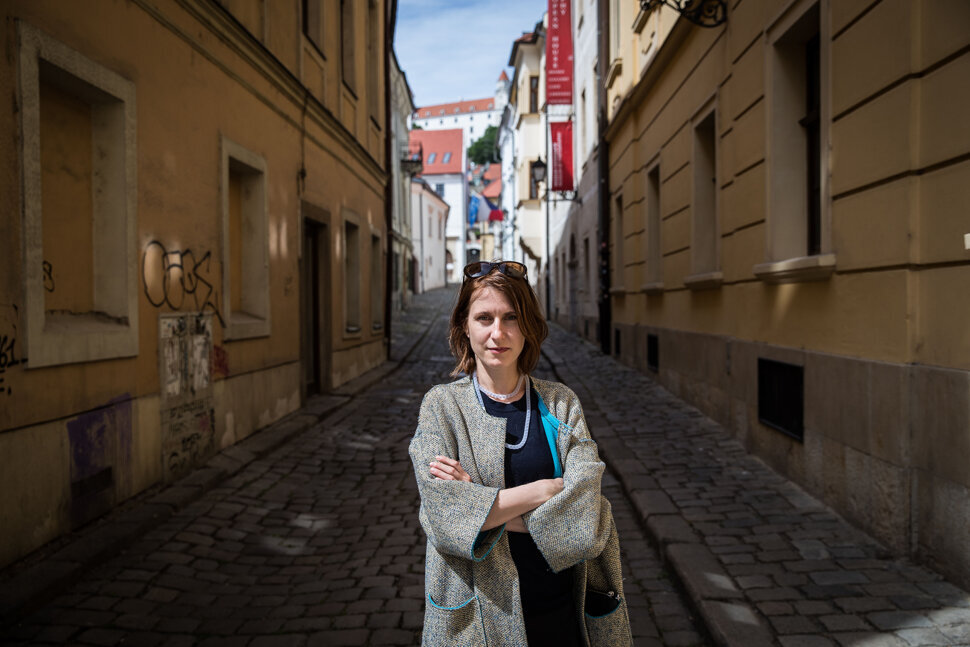We are a European crew made of artists, academics, entrepreneurs! More than 60 European contributors, from all generations and from 15 countries, came together to give reasons for action and build a common place for culture, creativity, and innovation in Europe. In these times of multiplicities of changes—despite or because—a novel type of change is taking shape. It is a transition that empowers a real movement, leaving behind hustling from one state to another: thinking more slowly, more deeply, more from a 360° perspective, and more caring beyond quick fixes. It is a compelling story mixing art, tech, and innovation. Together it is all transformative.
Read MoreMilota Sidorová shares her thoughts about the quality of life in Bratislava, its further sustainable development and the challenges that the city is likely to face in the years to come.
Read MoreOn the first death anniversary of New York-based architect Michael Sorkin, four of his students reminisce fond moments and the biggest learning from their mentor.
Read MoreFrom facing initial resistance to launching a new reality, women working in arts and culture have had a profound impact on cultural institutions and their working environment over the years. Not only have female cultural practitioners contributed to the transformation of societies, but also the growing number of women in leading positions.
Read MoreLandscape architect MILOTA SIDOROVÁ, whose work is about fairer urban planning, explains what could replace trees in cities, as well as how to create a park without having to take up new land, or how housing and shopping in cities and airports changes in a pandemic.
"When we go back to flying again, will we want thousands of people to move around the airport, shopping for hours, or will we try to speed up the flow of those people? These are logistical and hygiene issues, but they also affect capitalism," she says.
Read MoreMore bicycles, buses and trams should shape the cityscape in the future. But the mobility patterns of women and men differ. Transport policy is the construction of roads - for decades the politicians in Bratislava concentrated on car traffic as if there were no local transport and bicycles. Setting up new bus lanes was almost breaking a taboo. Politicians admitted to cycling, but it suffered from implementation. This has had consequences to this day: Less than two percent of all trips are made on bicycles.
Read MoreOnce you realize it, it makes a profound sense: men and women use the public space differently. Transport, playground, but also cemeteries. But city planners often do not think about the different needs of people. Milota Sidorová is in the Czech Republic and Slovakia in order to change it. A graduated landscape architect has combined urban planning with sociology and other humanities, and offers another recipe to change it - to help female architects stand out.
Read MoreIf you follow events in Central Europe and Slovakia, you will realize how important this time is to us. There are many exciting and fundamental things affecting our lives, political arrangements, deciding on our course, the future of democracy. How to grab all this and connect it meaningfully on the city level? I live by interdisciplinarity and one of the greatest experiences in life I consider knowledge. At the same time, I like to get to know patterns of human behavior. Therefore, in this paper, I would like to summarize moments from my practice as a planner, presenter, facilitator and woman who connects. I will talk about cities, self-government and the role of professors in a time of threatened democracy.
Read MoreRestless Cities: Lessons from Central Europe is a publication edited by Milota Sidorová and Zdeňka Lammelová that reflects a year-long training programme of the Prague office of the Heinrich-Böll Foundation focusing on understanding the political aspects of urban planning in the Czech Republic, Slovakia and Hungary. It consists of four thematic chapters that offer introductions into social housing in Brno, participatory processes in Prague, urban development of Bratislava and influencing strategies in Budapest.
Read MoreClimate change is beginning to affect our daily lives. For example, this summer it happened to me that I had to cancel a meeting with my colleague from Piešťany because she could not come to Bratislava. Because of the extreme heat, the tracks broke and trains got stuck. The tracks were simply not designed for temperatures of new summers. This is a practical demonstration of the impact of climate change on today's technology. Today we do not need to make cosmetic repairs, plant trees or flowers in pots, pour black asphalt roads - what we see in Bratislava. We have to get underground. This means bringing together and involving all those in charge of urban networks, that's the beginning.
Read MoreWho rides by car in the city? Who spends time in the parks? Who uses public transport? Who are the people who spend the most time in the city during the day? These are questions that should be the starting point for any public space intervention or urban design. With the urbanist and landscape architect Milota Sidorová, we talked about the topic of gender-sensitive planning. For example, she explained why it is important for girls and boys to play on the playgrounds.
Read MoreIt is very difficult to catch Milota. Just shortly before our conversation in a pleasant interior block of Panenská Street, she returned from Japan. We spent an hour's interview mainly on Bratislava and its upcoming changes. A public space expert perceives very sensitively non-systemic solutions for managing cities and neglecting the needs of weaker groups in city planning. She believes that Bratislava will also benefit from the positive experience with the transformation of the Prague self-government and the streets of Ljubljana.
Read MoreWe cordially invite you to an event, the first of its kind - aimed at networking and sharing experiences, organized by prominent Czech and international organizations involved in raising awareness of gender equality, architecture and spatial planning. How to design a fair shared city? What is gender mainstreaming? How can we use its principles to improve the quality of architectural practice and spatial planning and thus the quality of life in cities?
Read More











